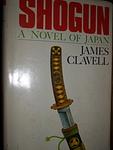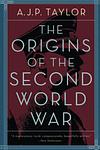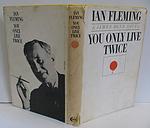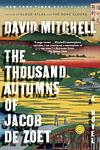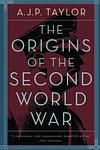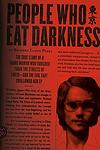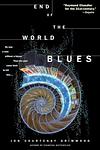The Greatest British "Japan" Books of All Time
Click to learn how this list is calculated.
This list represents a comprehensive and trusted collection of the greatest books. Developed through a specialized algorithm, it brings together 300 'best of' book lists to form a definitive guide to the world's most acclaimed books. For those interested in how these books are chosen, additional details can be found on the rankings page.
Genres
The "Japan" category for books encompasses a wide range of literature that explores the history, culture, and society of Japan. This includes works of fiction, non-fiction, and poetry that delve into the country's traditions, customs, and beliefs, as well as its modern-day politics, economy, and technology. Books in this category may also focus on specific aspects of Japanese culture, such as its cuisine, art, or entertainment, or explore the experiences of Japanese people living both within and outside of Japan. Overall, the "Japan" category offers readers a rich and diverse selection of books that provide insight into one of the world's most fascinating and complex cultures.
Countries
Date Range
Reading Statistics
Click the button below to see how many of these books you've read!
Download
If you're interested in downloading this list as a CSV file for use in a spreadsheet application, you can easily do so by clicking the button below. Please note that to ensure a manageable file size and faster download, the CSV will include details for only the first 500 books.
Download-
1. The Second World War by Winston Churchill
This book provides a comprehensive overview of the Second World War from the perspective of one of its most influential leaders. It covers the entire span of the war, from its origins in the political and economic turmoil of the 1930s, to the major battles and strategic decisions that shaped its course, to its aftermath and impact on the world. The author's unique perspective and firsthand experience, combined with his eloquent and insightful writing, make this a definitive account of one of the most important events in modern history.
-
2. Shogun by James Clavell
Set in the 17th century, this novel follows an English sailor who becomes a samurai in feudal Japan. The protagonist, shipwrecked and stranded in a foreign land, must navigate the complex political and cultural landscape of the time, filled with war, intrigue, honor, and love. The story is rich in historical detail, providing a vivid depiction of Japanese society during the Tokugawa Shogunate era.
-
3. An Artist of the Floating World by Kazuo Ishiguro
This novel is a historical narrative set in post-World War II Japan, focusing on an aging painter who grapples with his past as a propagandist for the imperialist movement. As he navigates the rapidly changing cultural landscape, he faces criticism and ostracism for his role in promoting Japan's militaristic past. The story explores themes of guilt, regret, and the struggle for redemption, offering a nuanced examination of the personal and societal consequences of war.
-
4. A Severed Head by Iris Murdoch
In this novel, a London wine merchant is living a seemingly comfortable life with his wife when his world is turned upside down by a series of shocking revelations. His wife confesses to an affair with her psychoanalyst, who is also his best friend, and plans to leave him. As he grapples with this betrayal, he begins an affair with his sister-in-law, only to discover that she is also involved with his wife's lover. The protagonist is forced to confront his own selfishness and immaturity as he navigates this tangled web of relationships.
-
5. A Pale View of Hills by Kazuo Ishiguro
"A Pale View of Hills" is a novel about a Japanese woman named Etsuko, who, after the suicide of her eldest daughter, reflects on her past in post-war Nagasaki. She recalls her friendship with Sachiko, a woman who plans to escape her miserable life by moving to America with her daughter Mariko. The narrative subtly explores themes of memory, guilt, and cultural dislocation while unveiling the complexities of human relationships and the haunting effects of the past on the present.
-
6. Second World War by John Keegan
"Second World War" is a comprehensive account of the global conflict that took place from 1939 to 1945. The book offers a detailed examination of the political, military, and social aspects of the war, from the rise of Hitler and the attack on Pearl Harbor, to the Holocaust and the dropping of the atomic bomb. The author provides an in-depth analysis of the strategies and tactics used by the major powers, and presents a vivid picture of the human cost of the war. The book also includes a variety of maps and photographs to help illustrate the events and locations discussed.
-
7. You Only Live Twice by Ian Fleming
In this thrilling installment of a renowned spy series, the protagonist, a British secret service agent, is sent on a mission to Japan following a personal tragedy that has left him despondent and seeking a purpose. Tasked with convincing the head of the Japanese secret intelligence service to provide access to a crucial Soviet code, he finds himself embroiled in a dangerous adventure that leads him to a mysterious garden inhabited by a deadly adversary. As he navigates through challenges that test his physical and mental resilience, the story unfolds into a tale of revenge, redemption, and the quest for inner peace, set against the backdrop of Cold War espionage and exotic locales.
-
8. The Thousand Autumns Of Jacob De Zoet by David Mitchell
Set at the turn of the 19th century on the artificial island of Dejima in Nagasaki Harbor, the novel follows a young Dutch clerk who arrives with the East India Company to make his fortune. Amidst the strict trade confines between Japan and the outside world, he encounters a complex web of relationships, power struggles, and cultural exchanges. His life becomes intertwined with that of a beautiful, yet disfigured Japanese midwife, leading to a forbidden love affair that defies the era's rigid boundaries. As he navigates through corruption, intrigue, and the clash of civilizations, the protagonist's integrity and loyalty are put to the test in a story that explores themes of isolation, connection, and the passage of time.
-
9. The Origins of the Second World War by A. J. P. Taylor
This book delves into the causes and events leading to the Second World War, challenging traditional views and suggesting that it was not a premeditated act of aggression by Germany, but rather a series of miscalculations and blunders by various nations. It argues that the war was not inevitable, but was the result of flawed diplomacy and the failure of the League of Nations. The author presents a detailed analysis of the actions of major players, including Britain, France, and Russia, providing a fresh perspective on the political climate of the time.
-
10. Ghostwritten by David Mitchell
Ghostwritten is a complex, interconnected narrative that spans the globe, featuring nine different characters in nine different locations, including a cult member in Okinawa, a jazz buff in Tokyo, a British investment banker in Hong Kong, an old woman running a tea shack in China, a transmigrating spirit in Mongolia, a ghostwriter in London, a physicist in Ireland, a late-night radio DJ in New York, and a noncorporeal entity in a global network. Each story is seemingly separate, but as the novel progresses, the connections between them become more apparent, creating a web of incidents and interactions that span space and time.
-
11. People Who Eat Darkness by Richard Lloyd Parry
This book is a gripping true-crime narrative that delves into the mysterious disappearance of a young British woman in Tokyo. The investigation unfolds into a harrowing journey through Japan's shadowy underworld, exposing the cultural and legal intricacies that complicated the search and captivated a nation. The author meticulously reconstructs the events leading up to the disappearance, the intense investigation that followed, and the eventual arrest and trial of the suspect. Through interviews, court documents, and a deep understanding of Japanese society, the narrative not only tells the story of a tragic loss but also explores themes of justice, obsession, and the impact of crime on families and communities.
-
12. End Of The World Blues by Jon Courtenay Grimwood
This novel weaves a complex narrative that straddles the line between a gritty, near-future Tokyo and a fantastical parallel world. The story centers around Kit Nouveau, a British expat running a bar in Tokyo, who finds his life irrevocably changed after saving a mysterious girl from an assassination attempt. As Kit becomes embroiled in a web of intrigue involving yakuza, a missing fortune, and the girl's enigmatic past, the narrative delves into themes of identity, redemption, and the concept of alternate realities. The book masterfully blends elements of cyberpunk, noir, and speculative fiction, creating a richly textured tale that explores the depths of human resilience and the quest for a second chance.
Reading Statistics
Click the button below to see how many of these books you've read!
Download
If you're interested in downloading this list as a CSV file for use in a spreadsheet application, you can easily do so by clicking the button below. Please note that to ensure a manageable file size and faster download, the CSV will include details for only the first 500 books.
Download
